Hello and New Friends in Fiji
Walking along the beach, enjoying the setting sun on our last night in Fiji, a man named Dunedin, sitting on a log with his friend says “hello” and calls us over for a chat. A new friend was made and on a wonderful night I’ll never forget, began.
One simple word can open many doors and bring people into your life like no other I know of. Along this journey we have met many people and had some great conversations that would have never happened without first saying hello. When we first began the trip, we were both nervous when it came to meeting new people, our busy lives before felt like we had little time to venture out of our comfort zones as it took all our energy to cope with the grind of the 9 to 5 routine, so approaching strangers and overcoming our fear of the unknown was something we would have to get used to and get used to fast. Part of it was from fear instilled from news media, but most of it was from the isolated lifestyle we lead while enduring the rat race and catering to unending to-do lists.
The First Hellos
Staying at the Mango Bay Resort in the Coral Coast for the first part of the trip was an easy way to begin opening up and talking to new people since we had to introduce ourselves during group activities, but this was done in a safe and fun environment. It was during our trip to the town of Sigatoka that we would have to put our fear of meeting strangers behind us. After eating lunch at the local Krishna temple we began to make our way back to the main part of town and to the pick up point for our ride back to the resort. As we walked down the road from the temple and began to pass by some houses, we hear “hello” come from the other side of a fence. A little hesitant, we took a couple more steps before we heard “hello” again as a man stepped out of the opening of a yard and then asked if we would like to join him and his buddies for a drink and some snacks. Even though we were both a little nervous and apprehensive, we decided to accept the offer and followed him into the yard and sat down next to a small open fire where him and his coworkers were cooking some food after a days work. It turned out that we were at his bosses house and he would soon came out to join us. After a having a glass of Fiji Gold, the beer of the island, and some snacks, we began to talk about where we were from and they explained that they had just finished work and this was there Saturday routine after finishing their 6 day work shift. It is interesting how small of a world it can be as the boss told he had a daughter who lived in Milpitas, California, a city near where we used to live, and we talked about the places he had visited during his trips to California. Though we couldn’t stay long as we had to be at the pick up point soon or we would miss our ride back to the resort, it was a good experience that helped us begin to overcome some of our fears. This was something I was grateful for a few days later when I would meet Dunedin.
Dunedin’s Welcome
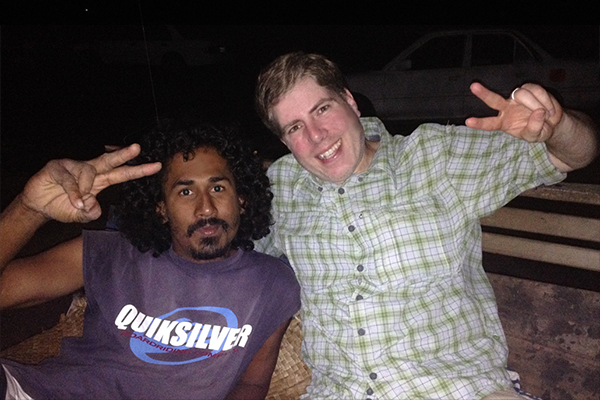
Dunedin, our new friend, and third generation Indo-Fijian slave.
When Dunedin called us over to talk as we spent our last night in Fiji walking along the beach, I had no idea we were in for one of the more interesting conversations we have had so far on this journey. Dunedin immediately got my interest when he said he was a third generation descendent from slaves. Fiji is comprised of two main ethnic groups, native Fijians and Indo-Fijians who were brought to the islands as indentured servants by the British to work in extremely bad conditions on the sugar cane plantations. I had been curious to learn the Indo-Fijian perspective of life knowing that they been a persecuted minority. He invited us to join him for some Kava and dinner. We couldn’t pass up the opportunity so we walked over to the house where he was staying with his uncle, Mr. Ahmad and his family. Their house was one of the few houses located away from the other residents without light pollution, near the beach.
Upon arriving at the house, he showed us the boat that his uncle was building. As we looked at the partially completed hull he explained that when it was finished, they would use it to take tourists out for fishing trips or ferry them to resort islands. It was impressive to see a boat being built by hand. The family was in the business of repairing boats and motors all over the island.
Sitting outside in the yard, we chatted and enjoyed a bowl of Kava, Dunedin told us of his life. Dunedin didn’t have much to his name and didn’t need nor desire much, other than to fulfil his one goal in life. He slept in a shed consisting of nothing other than the four sheet metals propping another sheet metal roof over his head and a piece of plywood as the door to prevent the wild dogs from devouring him while he slept, he said had everything he needed. Shelter, food fresh from the ocean, clothing, and income he received while he worked on maintaining his uncle’s boats to achieve his dreams was enough to satisfy him. His possessions were meagre and only consisted of a backpack which held his prized binocular, a National Geographic magazine featuring China’s people, and a few other books he had acquired from people he befriended in a similar manner he did with us. Dunedin explained his main goal is to save up enough money to get to China and to meet a wife while there and if he didn’t find one there, he would go to Mongolia.
Captivating Conversations
When the Kava was finished we hopped in his cousins car and proceeded to head to the store to get more Kava powder and the ingredients for that nights dinner, which we decided would be chicken curry with rice. As his cousin drove us to the store we were amazed that he seemed to know so many people, and would shout hello to people walking and even some driving while operating a vehicle. When we returned from the store, his uncle was outside sitting down waiting for us so he could talk.
May was directed into the house by Dunedin to help with the cooking (she thought that was kind of sexist) but from what she said, she shared an equally delightful conversation with the women who lived on the property. While the men stayed outside, started a fire to keep warm under the trees, smoked, drank Coke and snacked on cheese, they enjoyed another bowl of Kava all while conversing about many topics.
Mr. Ahmad
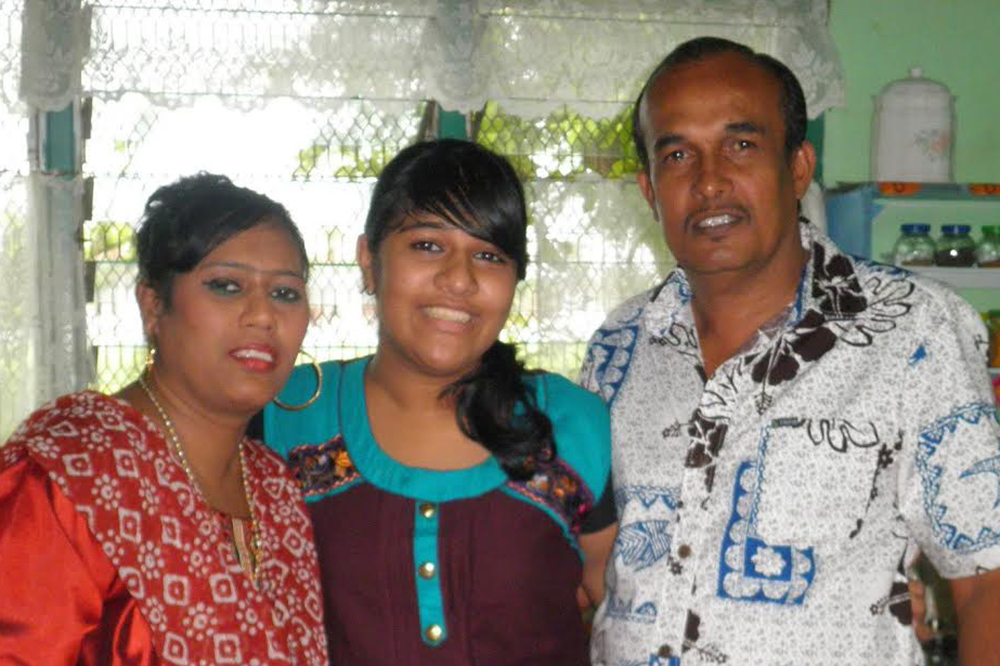
Mr. Ahmad and his wife (left) and daughter (right).
Dunedin’s uncle, Mr. Ahmad is an interesting man who had many things to talk about. My conversation with him quickly turned to politics, discussing current events such as Iraq and he asked if I thought the country was better off now or under Saddam Hussein’s rule. This question I have often asked myself since I was involved in the invasion of the country in 2003 during my time in the Navy. I explained that I don’t think it is better off and the war should have never been started. He said that Saddam was bad but what has now replaced him is much worse. He felt that there needed to be sensible people in government and when there wasn’t people, bad decisions are made. After politics we turned to discussing life and spirituality. We both seemed to agree that God is nature, Earth. To me it is our mother and that all living creatures are manifestations of her. There is an energy that flows through us all and binds us together. At this point May came out to join us and the conversation turned towards Indo-Fijian history.
Indo-Fijian Slavery
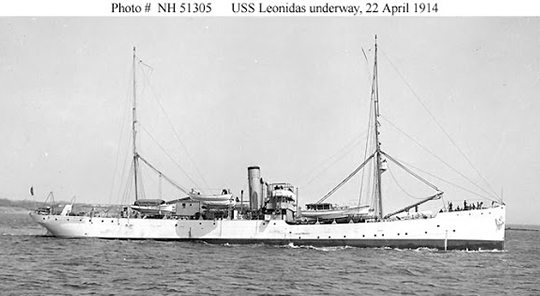
USS Leonidas is the first ship that arrived in Fiji on 14 May, 1879 with 497 indentured labourers (Girmitiyas). Source: Fiji Pundit
During the period of 1879-1919, 60,965 Indian indentured laborers were brought in from all parts of India to Fiji to not only work on the sugar cane plantations but also the rice paddies, with many dying on the ship during the journey from India. The slave system was brutal, forcing men and women to work the fields even if the women were pregnant and to live in squalid and degrading conditions in the camps. The workers were generally illiterate and the system came to be known as ‘Girmit’ (derived from the word ‘agreement’), and later were known to be called ‘Girmitiyas.’ The system required them to work for five years with little or no pay at which point they had the option to return to India or stay. Many stayed since they couldn’t afford to return to India. The ratio of men to women at this time was 5:1 which made things difficult on the plantations. This is why so many people knew each other, they had to share the same women, he explained. Due to these conditions, many different castes lived together and made the caste system obsolete with people changing religions. After independence, life for Indo-Fijians was not easy and the tensions between the native Fijians and Indo-Fijians has resulted in three military coups that either sought to reduce or increase the rights of Indo-Fijians which still continues today. The situation, he said, seems to be getting ever so slightly better as the government tries make all citizens equal. The Indo-Fijian experience comes from a complicated history and I tell from our conversation there are still many tensions underneath the surface of Fijian society.
World’s Largest Diamond Stolen from India
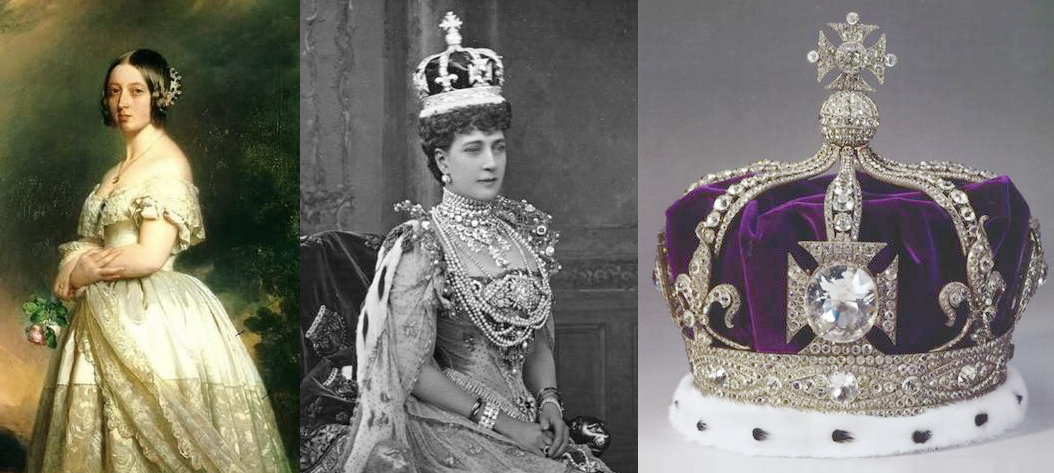
Left to right: Queen Victoria wearing the Koh-i-Noor as her brooch; Queen Alexandra wearing the Koh-i-Noor set front and center on the Royal Crown; The Royal Crown on display along with the other British Crown Jewels in the Tower of London.
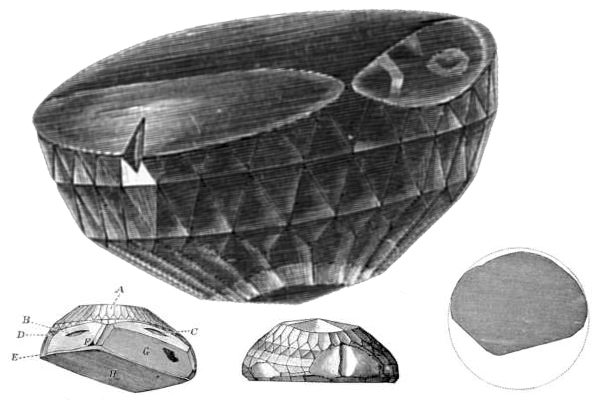
Tavernier’s illustration of the Koh-i-Noor under different angles.
One of the more interesting parts of the night’s conversation was his explaining British history in regards to India. When the British came to India they took as much gold as they could and shipped it back to England just like they did with every colony. Because of this, England has the most reserves of gold in the world and the reason the British Pound is the most valuable currency in the world. Not only did they take gold from India but they also took what was once known as the largest diamond in the world from India called the Koh-i-Noor or ‘The Mountain of Light.” Legend says that the emperor Shāh Jahān positioned the Koh-i-Noor near a window on the Tāj Mahal, so he could see it by looking at its reflection in the stone. This diamond had been stolen many times, but ultimately was stolen and cut down from 793 carats uncut, to 186 1/16 carats (37.21 g) and then again to its current 105.602 carats (21.61 g) and placed in Queen Victoria’s brooch, and later the Royal Crown. Dunedin mentioned that the diamonds were divided into nine pieces. From an uncut 793 carats to 105 carats, we’re not sure where the rest of the diamond went. We hope to visit the Tāj Mahal to see where the Koh-i-Noor was once placed.
Three Things in Life
At the end of the night Mr. Ahmad asked us three important questions, which I found to be pretty clever with the answers below.
1. What is the tastiest thing on Earth?
2. What is the worst thing anyone must endure?
3. What is the most comfortable?
After eating a delicious meal, we headed back to our hostel and got ready for our early morning flight to Australia. I’m glad we stopped and walked over to Dunedin when he said hello otherwise we would not have met his Uncle and family or had gotten to learn what is like to live in Fiji if only for one night. Meeting local people is one of the best ways to experience a culture where you can learn what the daily issues they face and that even though we come from different places we all seem to have similar dreams, to love and be loved while also having a sense of belonging.
Answers:
1. Salt
2. Stomach, because it drives us to do everything, good or bad, because we need to eat
3. A bed because nothing beats laying down after a hard days work or when you are sick
